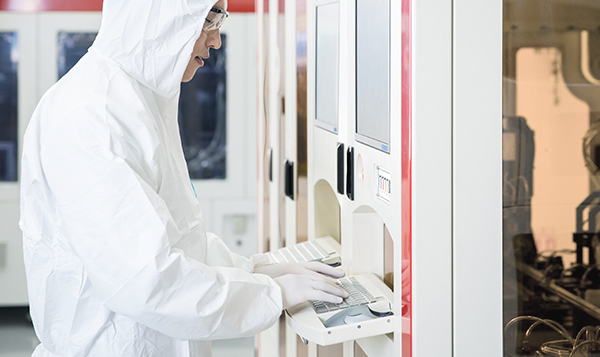
The Department of Laboratory Medicine was opened when Director Taek Gu Yun was appointed in February 1973 following the restructuring of the Research Institute of Radiological & Medical Sciences to the Korea Cancer Center Hospital as an affiliate of the Korea Atomic Energy Research Institute. In June 2002, the name of the department was changed from clinical pathology to laboratory medicine.
The department began its activities in full scale when Director Tae Won Lee and Director Seok Il Hong were appointed in December 1986 and December 1987, respectively. With Directors Dong Sun Lee, Yeong Jun Hong, Yun Hwan Jang, Jin Gyeong Lee, Ae Jin Oh, and Hye Jin Kim joining the team in 1991, 1998, 2002, 2005, 2016, and 2019, respectively, the detailed fields of laboratory hematology, clinical chemistry, clinical microbiology, diagnostic immunology, transfusion medicine, molecular diagnosis, urine chemistry test, and cellular genetic test have developed, and residents’ training has been continuously performed.
The data processing system plays a very important role in the reporting by the department of its outcomes. The laboratory information system (LIS) was established in 1999, followed by the order communication system (OCS) in 2000. In 2007, the testing lab was renovated, and LIS was reestablished. Since its first upgrade in 2010, the general information system of the Korea Institute of Radiological & Medical Sciences has been continuously upgraded to the current level.
As of September 2022, four specialists and one resident are actively providing care service and carrying out research activities together with 28 clinical pathologists and 1 office staff. Performing over four million examinations each year, the department has introduced specialized examination systems such as for MTX drug monitoring, B/T-cell clonality testing, and plasma EGF testing since the earlier phase.
As an activity to provide standardized and accurate examination results, the department participates in the domestic examination quality assessment and test lab certification programs of the Korean Association of External Quality Assessment Service, Korea Institute of Genetic Testing Evaluation, and Laboratory Medicine Foundation. Since 2000, it has renewed the certification as an excellent testing lab with outstanding records at the annual assessment.
In addition to handling examinations, the department provides consultation on hereditary cancers through the Hereditary Cancer Clinic to assist in patients’ understanding of and examinations for hereditary cancers. Moreover, through active participation in the operation of the National Radiological and Biological Resource Bank, it collects the remaining samples and provides them for use in various medical research activities.
Laboratory medicine is a field where scientific and technological development is applied to actual medical practice. As such, new examination techniques related to targeted therapy and precision medicine, the key issues for cancer treatment as of late, are being introduced continuously. Together with research on the latest technologies, the department will dedicate utmost effort to producing reliable, accurate examination results by actively introducing new examinations that are helpful in the diagnosis of patients and decision on treatment effects and managing the examination process.
